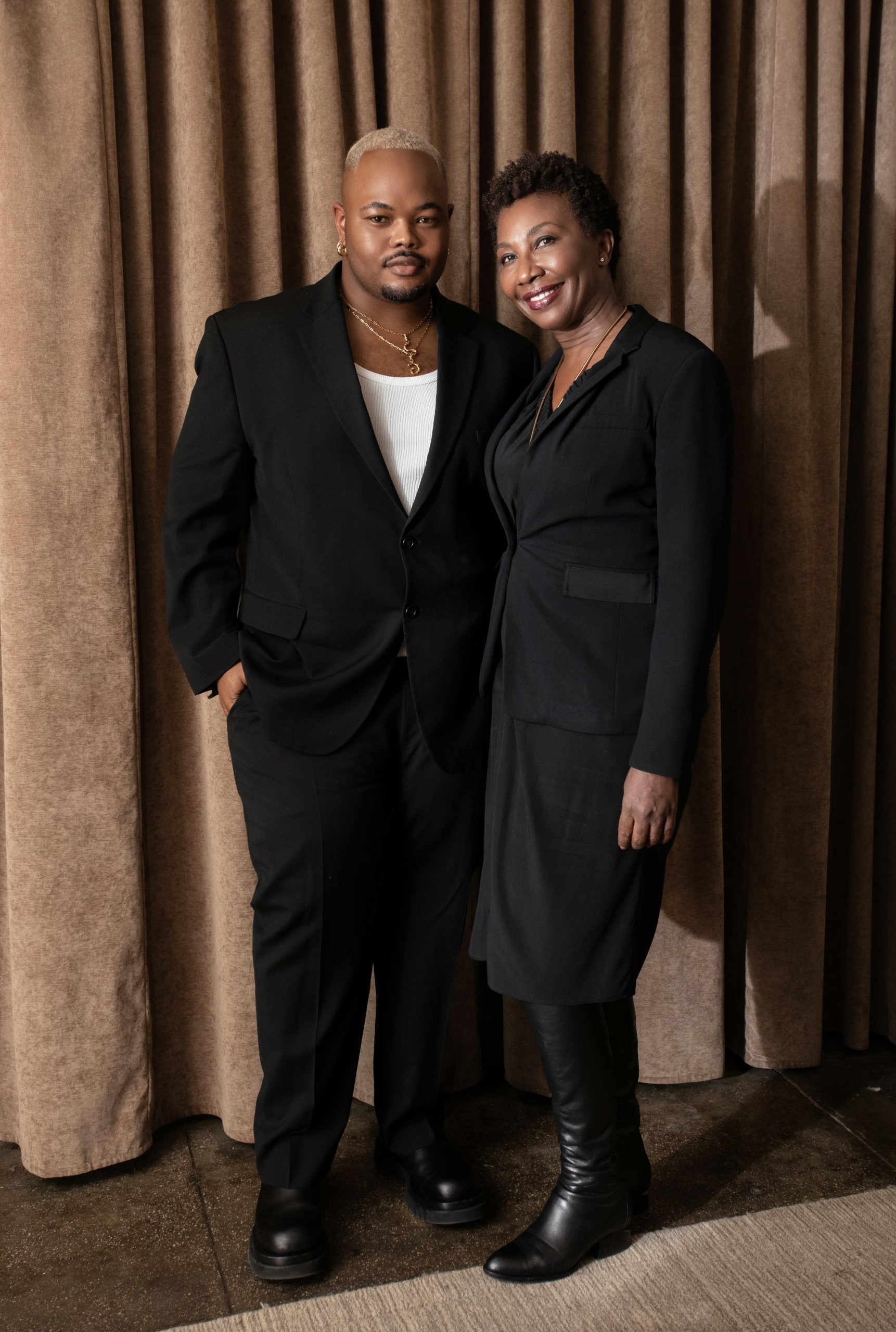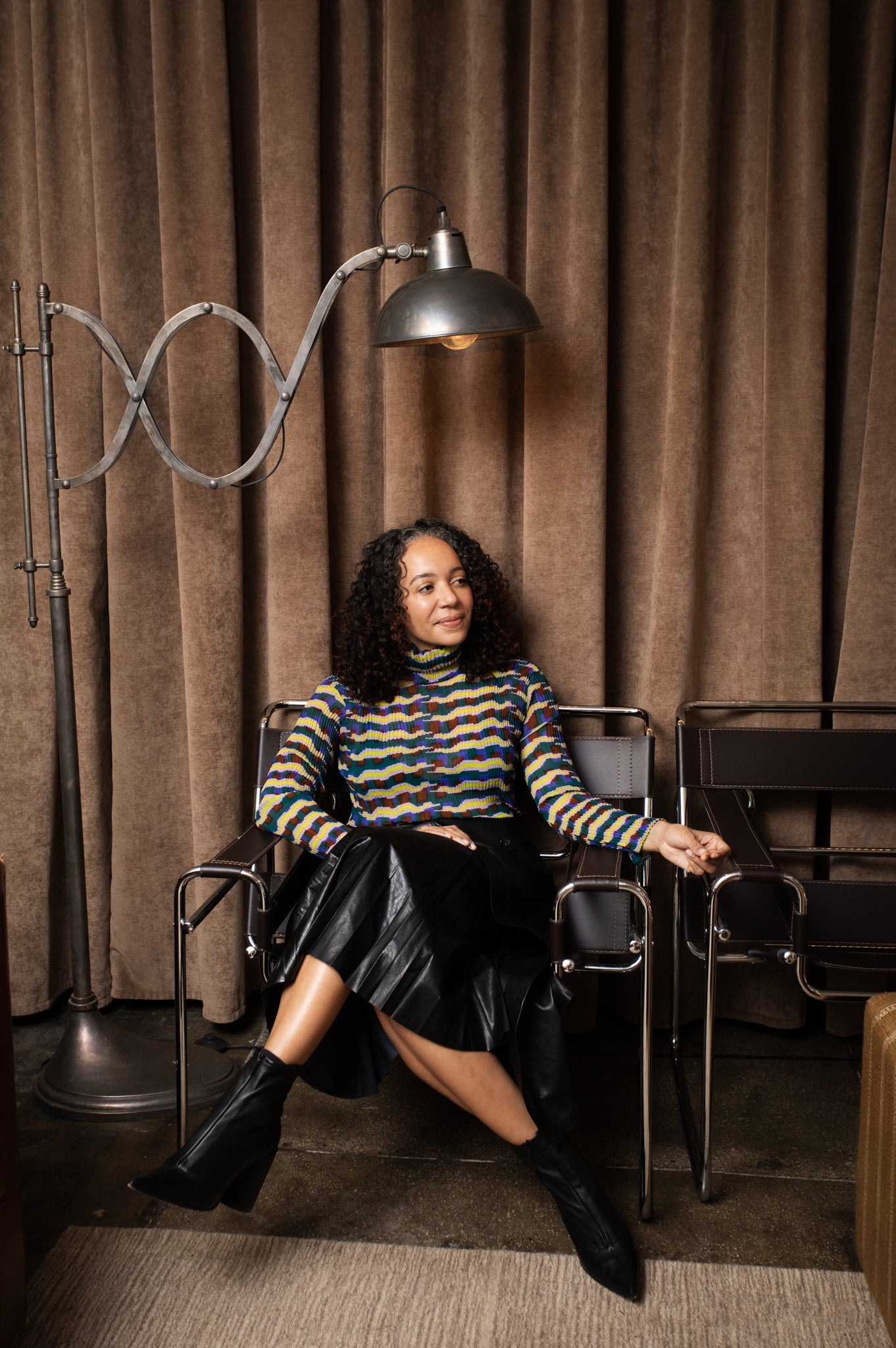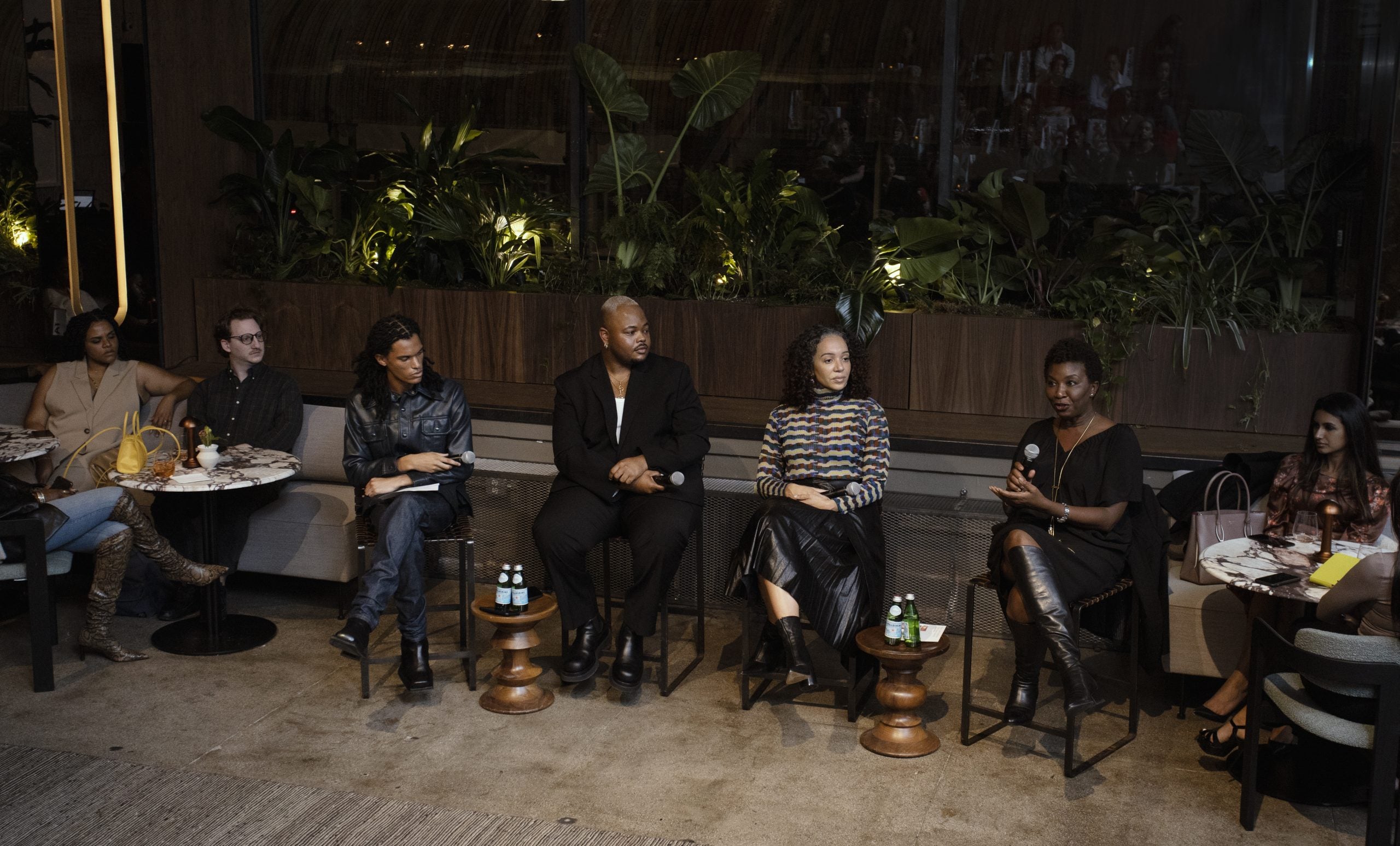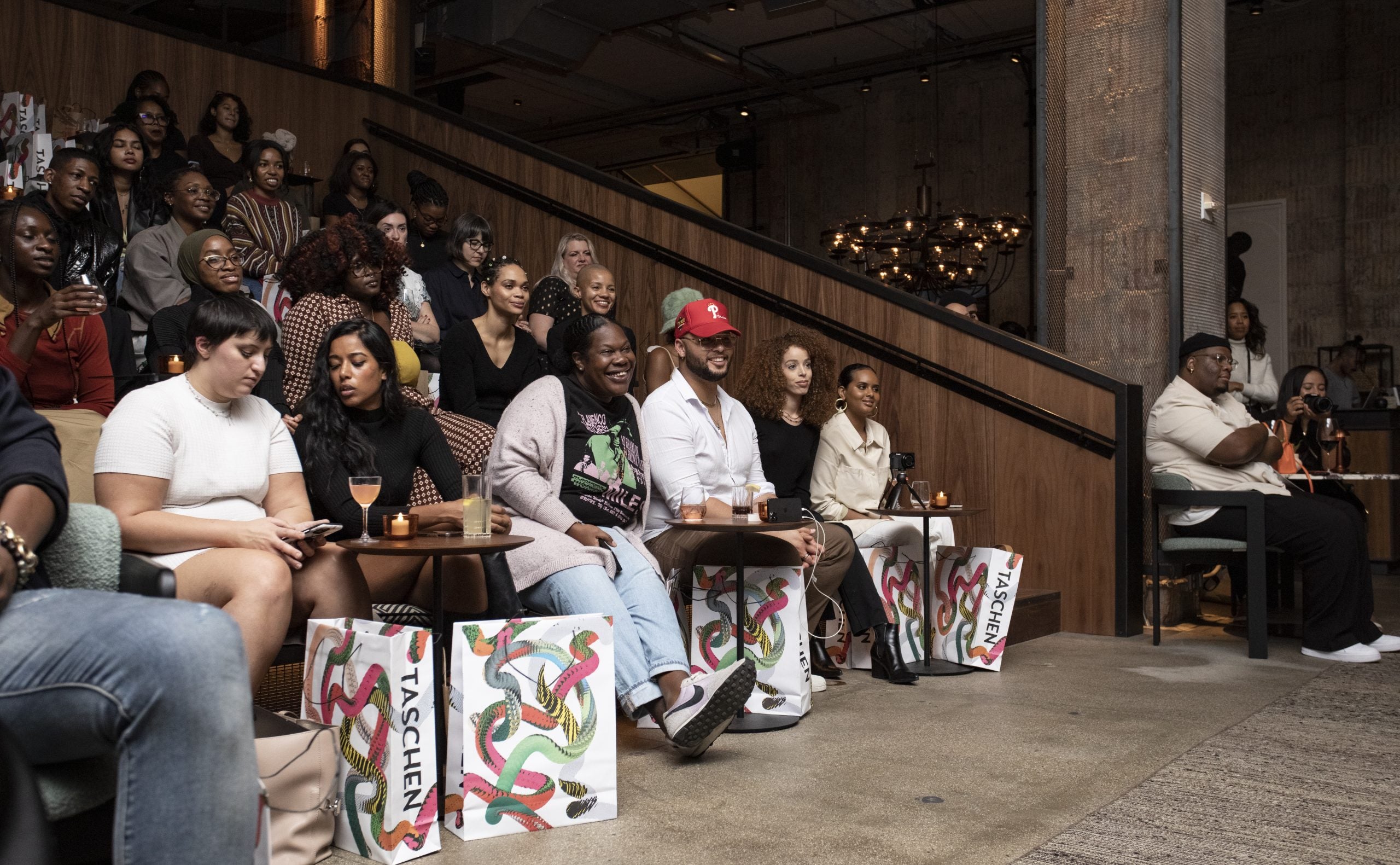
Licensed esthetician and former brand ambassador of Fenty Skin, Sean Garette, recently hosted the first segment of his new panel series, Skin Conversations, at NeueHouse Madison Square. For the inaugural panel, Garette invited Dr. Rose Ingleton, founder of Rose Ingleton MD, and Dr. Chaneve Jeanniton, founder of epi.logic skincare, to join him for a conversation moderated by Greg Emmanuel. The overarching focus was skincare, and since the panelists included three esteemed Black beauty professionals, the discussion highlighted how well melanin is represented within the industry, and how to care for our melanin with expert techniques.
The panel kicked off with a section titled “The Complexity of My Complexion” – inspired by the lyrics of Nas from his latest album King’s Disease II. Panelists began with sharing their thoughts and experiences on how well melanin is represented in the industry. “When I went to esthetician school, there were no books on how to treat skin of color, hyperpigmentation, acne, etc.,” Garette shared. “It wasn’t until I started my own practice that I saw how different skin conditions show up on people of color.”
Dr. Ingleton, who is one of New York’s most esteemed dermatologists, had a similar experience to Garrette regarding learning how to treat skin of color. “People are constantly seeking people who know how Black skin works and how it reacts to certain things,” she said. “That’s why I’m so busy,” Ingleton added. “I learned in my own trial and error, and living in this skin, and discerning what makes sense to me and this skin.” Dr. Jeanniton also recalls an experience during her student days when she asked the professor about how a certain ingredient or treatment worked on skin of color. “The woman rolled her eyes, not embarrassed by her ignorance, but annoyed that someone would ask her,” Jeanniton remembers.


When asked about the likelihood that melanin will be considered upon visiting a general dermatology office assigned by insurance, Ingleton explained that aspect of your treatment is not being considered because they see it and they understand it to a certain degree, but not the nuances. However, Ingleton did express that it is getting better, but that the number one thing to remember when in the patient seat is to ask questions. “If you’re going to see a physician ask how many times they’ve treated this problem, and then what about people who look like me,” said Ingleton. “What are the risks? What are the side effects? Gaps in knowledge means advocating for yourself.”
The first section continued with tips on how to treat hyperpigmentation, and also touched on the emotional benefits to having a Black dermatologist and esthetician. It’s well-known that stress is a common cause of acne, so having a doctor that you trust and can relate to is the first step to channeling a relaxed state of mind on your journey to clear skin. “I may never get to the real reason why you’re here if I don’t calm you down first,” said Ingleton, who uses a technique called task-esthesia to help patients relax during their treatment.

The second half of the panel was centered around cosmetic maintenance, and discussing cosmetic procedures, both surgical and non-surgical. Each panelist stressed the importance of consultations, and re-emphasized asking questions. Attendees were able to immediately take the suggested advice, and ask questions for the final segment of the panel. Garrette responded with some of his expert tips, along with support from Ingleton and Jeanniton – a complimentary consultation, thanks to the panel.

Stay tuned into Garrette’s Instagram to find out who will be on the next segment of Skin Conversations.
